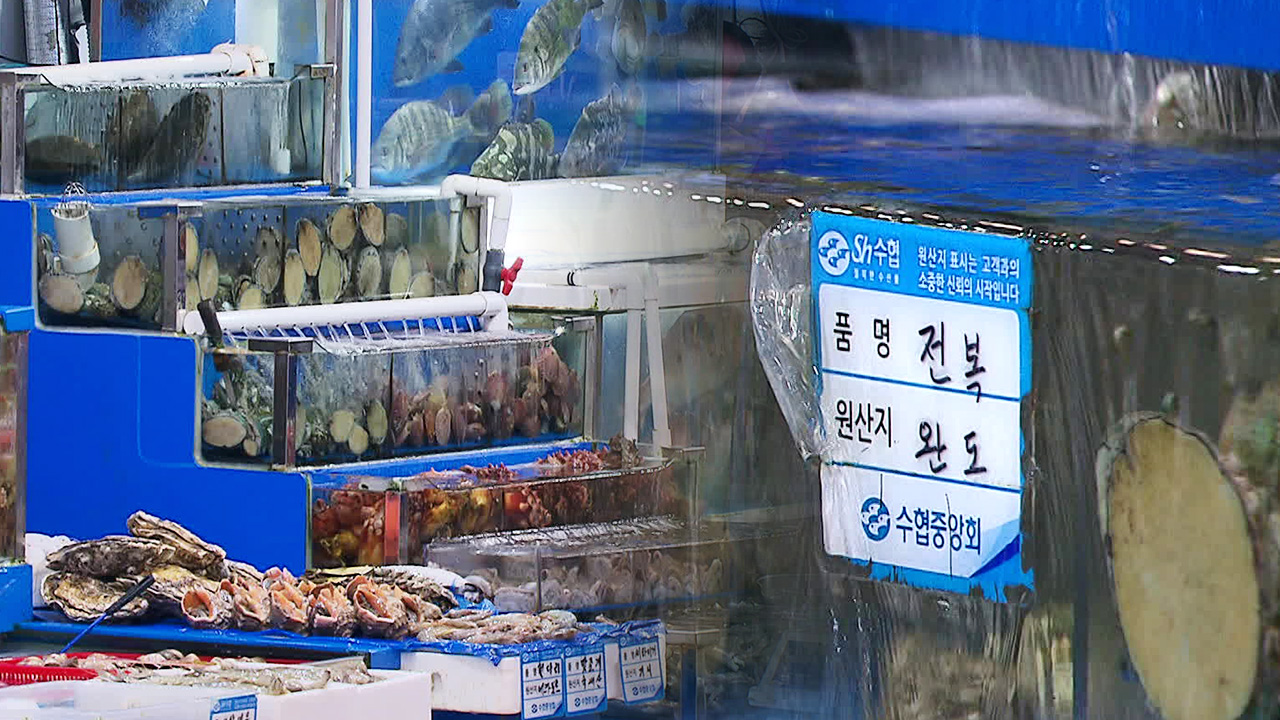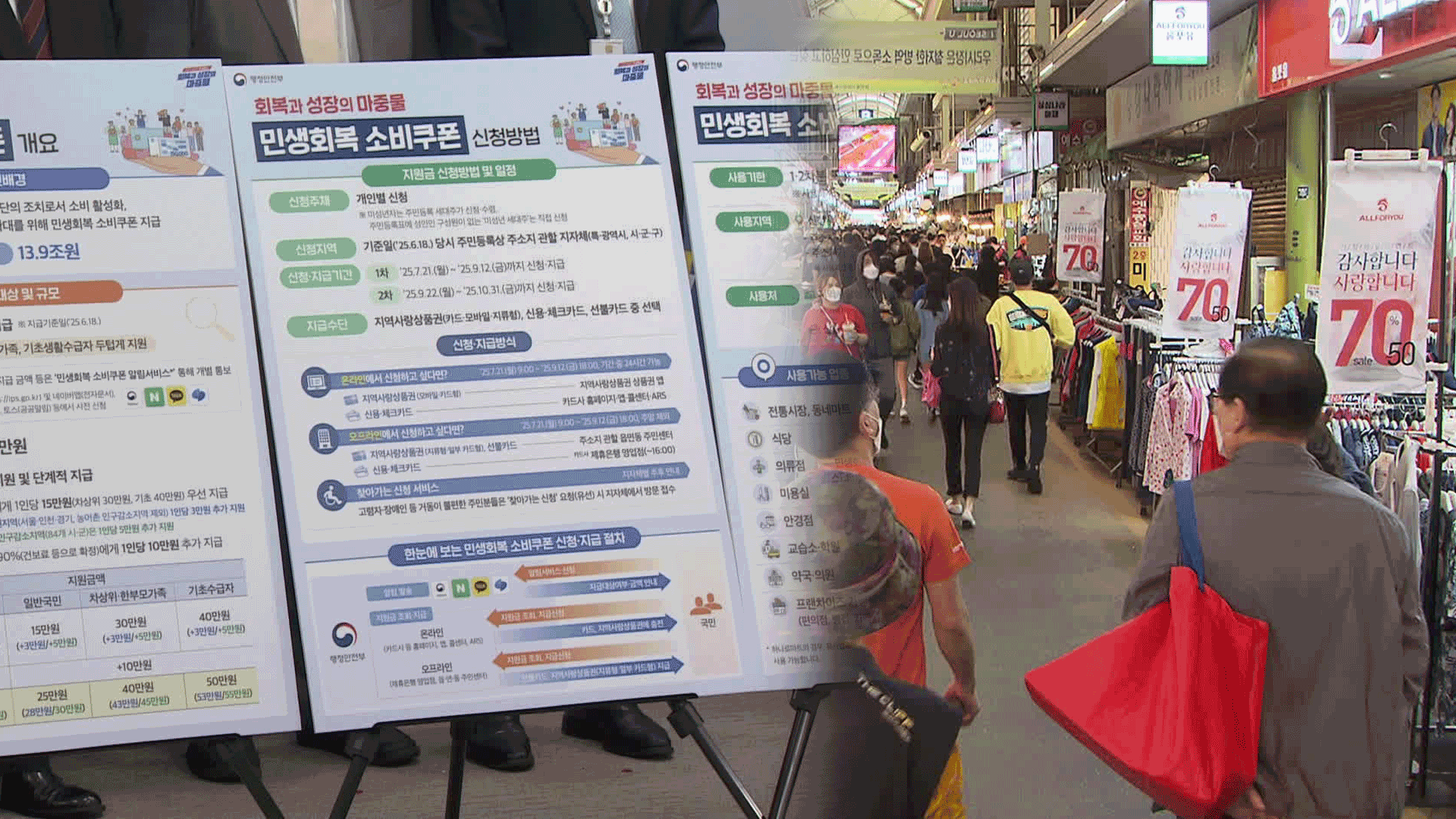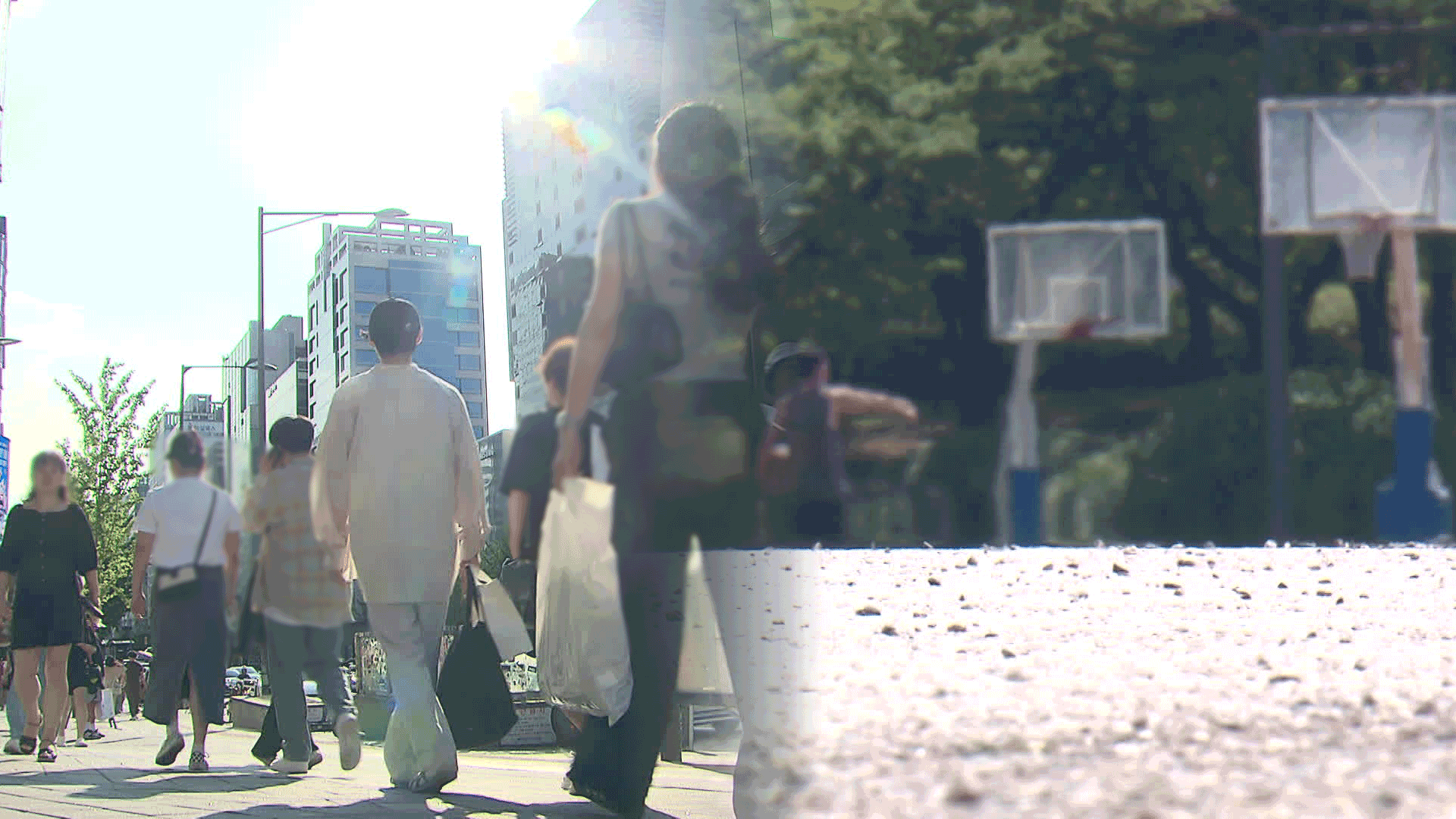Online blind spot for sales of illegally caught fisheries in closed season
입력 2024.10.07 (01:05)
읽어주기 기능은 크롬기반의
브라우저에서만 사용하실 수 있습니다.
[Anchor]
To protect the dwindling fishery resources, a closed season has been established for each species, during which they cannot be caught.
However, natural abalone, which should not be caught from September to October, is openly being sold online.
Reporter Lee Hee-yeon investigated how this is happening.
[Report]
Tanks filled with abalone.
All of them are farmed abalone shipped from Wando, Jeollanam-do Province.
During the closed season from September to October, it is difficult to find natural abalone in the seafood market.
[Lim Mi-jeong/Fish Market Merchant : "Because it's the closed season, only farmed ones are available. In the Noryangjin seafood market that I know, we cannot sell (fisheries caught during the closed season)."]
However, 'natural abalone' is being openly sold on major online shopping malls.
This is natural abalone ordered online.
Even though it is the prohibited period for harvesting, I was able to receive it easily just three days after placing the order.
Others in the closed season, like domestic snow crabs and baby squid, are being sold online.
Despite the illegal catch being sold openly, enforcement is lacking.
[Ji Jeong-hoon/Ministry of Oceans and Fisheries, Director of Fisheries Policy Division : "In terms of distribution online, the number of cases detected is relatively very low compared to auction houses, landing sites, or markets."]
There is virtually no monitoring by online shopping malls.
Current laws punish those who distribute illegal catches, but since 2020, out of 338 cases of illegal catches detected, not a single case has involved a distribution platform being punished.
[Moon Geum-joo/National Assembly Committee on Agriculture, Food, Rural Affairs, Oceans and Fisheries/Democratic Party : "I believe we need to conduct continuous monitoring to protect our seafood and fishery resources."]
As the investigation began, 'Coupang' and '11th Street' announced they would prohibit the sale of unverified catches and strengthen their monitoring.
Additionally, the Ministry of Oceans and Fisheries has decided to operate an online monitoring task force to enhance enforcement.
This is KBS News, Lee Hee-yeon.
To protect the dwindling fishery resources, a closed season has been established for each species, during which they cannot be caught.
However, natural abalone, which should not be caught from September to October, is openly being sold online.
Reporter Lee Hee-yeon investigated how this is happening.
[Report]
Tanks filled with abalone.
All of them are farmed abalone shipped from Wando, Jeollanam-do Province.
During the closed season from September to October, it is difficult to find natural abalone in the seafood market.
[Lim Mi-jeong/Fish Market Merchant : "Because it's the closed season, only farmed ones are available. In the Noryangjin seafood market that I know, we cannot sell (fisheries caught during the closed season)."]
However, 'natural abalone' is being openly sold on major online shopping malls.
This is natural abalone ordered online.
Even though it is the prohibited period for harvesting, I was able to receive it easily just three days after placing the order.
Others in the closed season, like domestic snow crabs and baby squid, are being sold online.
Despite the illegal catch being sold openly, enforcement is lacking.
[Ji Jeong-hoon/Ministry of Oceans and Fisheries, Director of Fisheries Policy Division : "In terms of distribution online, the number of cases detected is relatively very low compared to auction houses, landing sites, or markets."]
There is virtually no monitoring by online shopping malls.
Current laws punish those who distribute illegal catches, but since 2020, out of 338 cases of illegal catches detected, not a single case has involved a distribution platform being punished.
[Moon Geum-joo/National Assembly Committee on Agriculture, Food, Rural Affairs, Oceans and Fisheries/Democratic Party : "I believe we need to conduct continuous monitoring to protect our seafood and fishery resources."]
As the investigation began, 'Coupang' and '11th Street' announced they would prohibit the sale of unverified catches and strengthen their monitoring.
Additionally, the Ministry of Oceans and Fisheries has decided to operate an online monitoring task force to enhance enforcement.
This is KBS News, Lee Hee-yeon.
■ 제보하기
▷ 카카오톡 : 'KBS제보' 검색, 채널 추가
▷ 전화 : 02-781-1234, 4444
▷ 이메일 : kbs1234@kbs.co.kr
▷ 유튜브, 네이버, 카카오에서도 KBS뉴스를 구독해주세요!
- Online blind spot for sales of illegally caught fisheries in closed season
-
- 입력 2024-10-07 01:05:20

[Anchor]
To protect the dwindling fishery resources, a closed season has been established for each species, during which they cannot be caught.
However, natural abalone, which should not be caught from September to October, is openly being sold online.
Reporter Lee Hee-yeon investigated how this is happening.
[Report]
Tanks filled with abalone.
All of them are farmed abalone shipped from Wando, Jeollanam-do Province.
During the closed season from September to October, it is difficult to find natural abalone in the seafood market.
[Lim Mi-jeong/Fish Market Merchant : "Because it's the closed season, only farmed ones are available. In the Noryangjin seafood market that I know, we cannot sell (fisheries caught during the closed season)."]
However, 'natural abalone' is being openly sold on major online shopping malls.
This is natural abalone ordered online.
Even though it is the prohibited period for harvesting, I was able to receive it easily just three days after placing the order.
Others in the closed season, like domestic snow crabs and baby squid, are being sold online.
Despite the illegal catch being sold openly, enforcement is lacking.
[Ji Jeong-hoon/Ministry of Oceans and Fisheries, Director of Fisheries Policy Division : "In terms of distribution online, the number of cases detected is relatively very low compared to auction houses, landing sites, or markets."]
There is virtually no monitoring by online shopping malls.
Current laws punish those who distribute illegal catches, but since 2020, out of 338 cases of illegal catches detected, not a single case has involved a distribution platform being punished.
[Moon Geum-joo/National Assembly Committee on Agriculture, Food, Rural Affairs, Oceans and Fisheries/Democratic Party : "I believe we need to conduct continuous monitoring to protect our seafood and fishery resources."]
As the investigation began, 'Coupang' and '11th Street' announced they would prohibit the sale of unverified catches and strengthen their monitoring.
Additionally, the Ministry of Oceans and Fisheries has decided to operate an online monitoring task force to enhance enforcement.
This is KBS News, Lee Hee-yeon.
To protect the dwindling fishery resources, a closed season has been established for each species, during which they cannot be caught.
However, natural abalone, which should not be caught from September to October, is openly being sold online.
Reporter Lee Hee-yeon investigated how this is happening.
[Report]
Tanks filled with abalone.
All of them are farmed abalone shipped from Wando, Jeollanam-do Province.
During the closed season from September to October, it is difficult to find natural abalone in the seafood market.
[Lim Mi-jeong/Fish Market Merchant : "Because it's the closed season, only farmed ones are available. In the Noryangjin seafood market that I know, we cannot sell (fisheries caught during the closed season)."]
However, 'natural abalone' is being openly sold on major online shopping malls.
This is natural abalone ordered online.
Even though it is the prohibited period for harvesting, I was able to receive it easily just three days after placing the order.
Others in the closed season, like domestic snow crabs and baby squid, are being sold online.
Despite the illegal catch being sold openly, enforcement is lacking.
[Ji Jeong-hoon/Ministry of Oceans and Fisheries, Director of Fisheries Policy Division : "In terms of distribution online, the number of cases detected is relatively very low compared to auction houses, landing sites, or markets."]
There is virtually no monitoring by online shopping malls.
Current laws punish those who distribute illegal catches, but since 2020, out of 338 cases of illegal catches detected, not a single case has involved a distribution platform being punished.
[Moon Geum-joo/National Assembly Committee on Agriculture, Food, Rural Affairs, Oceans and Fisheries/Democratic Party : "I believe we need to conduct continuous monitoring to protect our seafood and fishery resources."]
As the investigation began, 'Coupang' and '11th Street' announced they would prohibit the sale of unverified catches and strengthen their monitoring.
Additionally, the Ministry of Oceans and Fisheries has decided to operate an online monitoring task force to enhance enforcement.
This is KBS News, Lee Hee-yeon.
-
-

이희연 기자 hear@kbs.co.kr
이희연 기자의 기사 모음
-
이 기사가 좋으셨다면
-
좋아요
0
-
응원해요
0
-
후속 원해요
0















이 기사에 대한 의견을 남겨주세요.